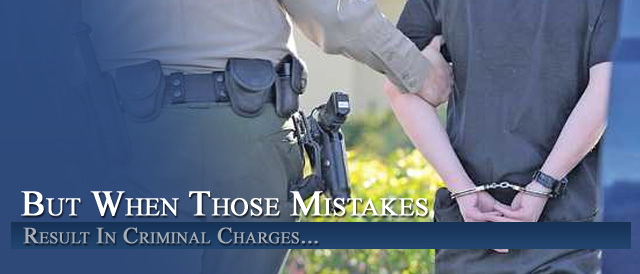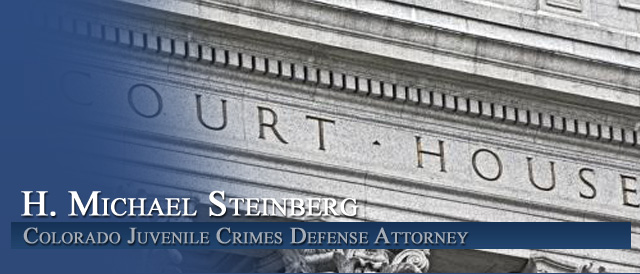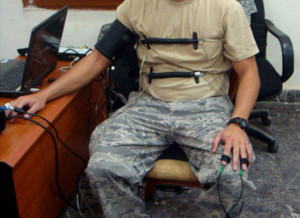




Polygraph Use In Colorado with Juvenile Sex Offenders
By H. Michael Steinberg Juvenile Crimes Criminal Defense Lawyer – Attorney
Polygraph Use In Colorado With Juvenile Sex Offenders – If you are on Colorado Sex Offender Intensive Supervision Probation you are taking polygraphs – known as Clinical Polygraph Examinations or CPE’s. It is more complicated as the SOMB standards – which govern Colorado Sex Offender Probation – are applied to juveniles.
Polygraph Use In Colorado With Juvenile Sex Offenders – Will They Make My Child Take Polygraphs?
This article addresses when and how Juveniles can be subjected to polygraphs under Colorado criminal regulations and laws.
Why Are Polygraphs Used In Sex Offender Treatment?
It is well known that polygraphs are not admissible in the trial of criminal cases in Colorado. The question arises then – how can they be used in Colorado sex offender intensive supervision probation.
The stated objectives of the “clinical use” of polygraph examination is to “obtain accurate information for placement recommendations, treatment planning, clinical interventions, risk assessment, and community management.” The polygraph is a tool used by the so called experts to assess reports relating to behavior.
There are three types of polygraph examinations typically used with convicted Adult sex offenders in Colorado – those are:
The Sexual History Disclosure Polygraph Test – This test targets a verification of the completeness of the sex offender’s disclosure of his or her entire sexual history. This is a comprehensive sexual history questionnaire type polygraph.
The Instant Offense Disclosure Polygraph Test – This test is fact specific and targets the truthfulness of the sex offender’s disclosure of his or her behavior in a particular sex offense. This is addressed to the most recent sex offense related to the present criminal charges.
The Maintenance/Monitoring Polygraph Test – This is an ongoing, very repetitive polygraph that verifies the sex offender’s report of his or her compliance with probation supervision and other rules and restrictions placed on the offender. The focus here is to obtain information needed for offender placement recommendations, his or her treatment plan, risk assessment, community management and other clinical interventions.
The Use of Polygraphs With Juvenile Sex Offenders Is Very Controversial
The use of polygraphs in juvenile sex offender criminal cases is more than controversial.
A recent study (Meijer et al. (2008)) found that evidence for the claims about the clinical potential of polygraph tests is “weak, if not absent.”
The concerns about using polygraphs with juveniles on sex offender probation include their basic reliability and validity as well as the possibility that a so called confession made during the administration of the poly was due more to a sex offenders’ beliefs and the procedures used to elicit the incriminating statement than the truth of the statement itself.
Polygraphs are also criticized for the negative effect they may have on therapeutic relationships involved and on the offender’s self-esteem.
There Is Little Research On The Use Of Polygraphs On Juvenile Sex Offenders
Another major concern about the use of polygraph’s is the lack of empirical studies that establish the value of polygraph testing in sex offender treatment. The research that has been done has been on adult offenders – there are few empirical studies that specifically include adolescent populations.
Colorado’s Community Containment Approach and Increasing Use of Polygraphs
Colorado uses what is commonly termed a “containment approach” for supervising adult and juvenile sex offenders. Colorado’s “community containment approach” involves a multi-disciplinary case management team (MDT) which is comprised of a probation or parole officer, a treatment provider, and a polygraph examiner who together determine the so called therapeutic approach in any given case. While the use of polygraphs in adult sex offender supervision cases is standard operating procedure, the decision to use polygraphs for the treatment and supervision of juveniles with sexual behavioral problems while once rare .. is increasing.
The SOMB Standard That Applies To Colorado Juvenile Sex Offenders – Standard 7.000
I believe that there is no better way to understand the application and the limits of the law – than to study the law or rule in question. The law is no mystery to lawyers because they read it. All of my websites try to make the law understandable to the average Colorado citizen. To do this – I reprint the law, rule or case in question and then analyze it in brackets.
Here is the rule in this case that applies.
7.000 Polygraph Examination of Juveniles Who Have Committed Sexual Offenses
[HMS – Which juveniles can be forced to take a polygraph? – The criteria follows:]7.100 The multidisciplinary team shall refer for polygraph examination those juveniles who meet the following criteria:
A. Chronological age of 14 or older, and a minimum functional age-equivalency of 12 years
1. Twelve (12) and thirteen (13) year olds may be referred for polygraph examination when the multidisciplinary team determines that the information and results would be clinically useful. There must be a determination of a minimum functional age-equivalency of 12 years, and the juvenile must meet other criteria for suitability for polygraph testing as defined in this Section.
[HMS – But If there is a doubt about the mental functioning of the child – polygraphs cannot be used.]2. Standardized psychometric testing shall be employed when there is doubt about a juvenile’s level of functioning.
B. Capacity for abstract thinking
C. Capacity for insight
D. Capacity to understand right from wrong
E. Ability to tell truth from lies
F. Ability to anticipate rewards and consequences for behavior
G. Consistent orientation to date, time, place
[HMS – The results must be useable as determined by the polygraph examiner]7.110 At the time of testing the polygraph examiner shall make the final determination of suitability for polygraph examination and shall not conduct polygraph examinations with juveniles when clear indicators exist that results would be invalid.
7.111 The multidisciplinary team shall determine and document in case files the rationale for and type of polygraph testing used, frequency of testing and the use of the results in treatment, behavioral monitoring and supervision.
[HMS – If ANY of the following factors are present – there can be no use of the polygraph.]7.120 The multidisciplinary team shall not refer juveniles for polygraph testing when any of the following are present:
A. Diagnosis of psychotic condition per the DSM IV-TR
B. Lack of contact with reality
C. DSM IV-TR Axis I severity specifier of “severe” for any diagnosis
D. DSM IV-TR Axis V Current – Global Assessment of Functioning score indicative of serious or profound functional difficulties (i.e., GAF score less than 50)
E. Presence of acute pain or illness
F. Presence of acute distress
G. Recent medication changes
H. Mean Age Equivalency (MAE) or Standard Age Score (SAS) is below 12 years (per standardized psychometric testing)
I. Clear indicators exist that results would be invalid.
[HMS – The MD Team and the polygrapher must document the use or decision not to use the polygraph.]7.121 Exceptions to the requirement to use polygraph testing shall be made by a majority of the multidisciplinary team in consultation with the polygraph examiner. The reasons for the exception shall be documented in the juvenile’s file. If the exception(s) change, documentation is required regarding referral for or continued deferment from polygraph examination.
[HMS – There can be no polygraphy examination without parent – guardian informed consent.]7.130 No juvenile shall be referred for polygraph examination without the full, informed consent of the parent/legal guardian and the informed assent of the juvenile. The potential consequences of compliance or non-compliance with the procedure should be fully explained including legal consequences.
[HMS – The juvenile has to be informed of the nature, use, and consequences of the polygraph and can terminate the exam or speak to his or her lawyer at any time if they wish.]7.140 Before commencing any polygraph examination with any juvenile who has committed a sexual offense, the polygraph examiner shall document that each juvenile, at each examination, has been provided a thorough explanation of the polygraph examination process and the potential relevance of the procedure to the juvenile’s treatment and/or supervision. Review and documentation of informed assent will include information regarding the juvenile’s right to terminate the examination at any time and to speak with his/her attorney if desired.
7.150 As per standardized polygraph examination procedure, polygraph examiners shall be required to explain during the pre-test interview the polygraph instrumentation including causes of psychophysiological responses recorded during testing.
7.160 Polygraph testing shall be used as an adjunct tool, it does not replace other forms of monitoring. Information and results obtained from polygraph examinations should never be used in isolation when making treatment or supervision decisions.
7.161 Information and results obtained through polygraph examination shall be considered, but shall not become the sole basis for decisions regarding transition, progress, and completion of treatment. Polygraph test findings for juveniles should be reported as “significant reactions,” “no significant reactions,” or as “inconclusive.” Such findings become a focus area for treatment and supervision. The findings of polygraph tests, as well as the juvenile’s compliance or refusal to comply with request for polygraph testing, should not be used as the sole source in making treatment and supervision decisions.
7.162 The multidisciplinary team shall respond to polygraph testing results in order to maintain the efficacy of the tool for maximum therapeutic benefit. Multidisciplinary team responses shall be in the form of sanctions, additional restrictions, rewards, or follow-up through the treatment and safety plans commensurate with the information obtained in the results.
[HMS – What follows is a closer look at the different types of juvenile sex offender polygraphs and when they are used.]7.170 The following types of polygraph examinations shall be used with juveniles who have committed sexual offenses:
A. Sexual History polygraph examination:
1. The multidisciplinary team shall refer juveniles determined to be suitable for polygraph examination according to the criteria defined in Section 7.100 for sexual history polygraph examination. When employed, the sexual history polygraph examination should be initiated within 3-9 months following the onset of treatment to allow for sufficient preparation and follow-up on the information and results
2. When necessary, the multidisciplinary team may accelerate or delay referral for sexual history polygraph examination, and the reasons for this decision must be documented in the juvenile’s clinical and supervision records
3. The multidisciplinary team shall assure that juveniles referred for sexual history polygraph examination possess sufficient understanding of laws and definition regarding abusive and/or illegal sexual behavior
4. Test questions shall focus on issues that are clinically relevant to risk assessment, treatment issues and transition planning
5. Care shall be given to minimize the focus on detail that may be sexually arousing
B. Maintenance/monitoring polygraph examination:
1. The multi-disciplinary team shall refer juveniles determined to be suitable for polygraph examination according to criteria defined in section 7.100 for maintenance/monitoring polygraph examination prior to transition to less restrictive placement settings in the community.
2. When indicated in accordance with suitability criteria, the multi-disciplinary team shall refer juveniles for maintenance/monitoring polygraph examination approximately 2-4 months prior to transition from one supervision level to another.
Alternatively, the multi-disciplinary team shall determine whether the juvenile may benefit more from participation in maintenance/monitoring polygraph examination 2-4 months following transition to a less restrictive setting, or may impose requirements for periodic maintenance polygraph examinations.
3. Test questions shall focus on issues that are clinically relevant to the assessment of safety and/or risk, compliance with the conditions of treatment and supervision and progress in treatment.
C. Specific Issue polygraph examination:
1. The multi-disciplinary team shall, at it’s discretion, refer juveniles determined to be suitable for polygraph examination according to criteria defined in Section 7.100 for specific issue polygraph examination.
2. Specific issue polygraph examination shall be employed under the following conditions:
a. Substantial denial of offense
b. Significant discrepancy between the account of the juvenile who committed a sexual offense and the victims description of the offense
c. To explore specific allegations or concerns
d. Prior to victim clarification per Section 8.000 of these Standards.
E. Polygraph examiners shall record each examination in its entirety. While audio and video recording is preferable, audio recording alone will suffice when video recording is not practical.
F. Polygraph examiners shall submit a written report within two (2) weeks of the examination that will be factual and descriptive of the information and results of each examination. Written reports are intended for treatment and supervision purposes only, and shall be submitted to the supervising officer/agent, caseworker and treatment provider. Each report shall include information regarding:
1. The date of examination
2. Beginning and ending time
3. Name of person requesting examination
4. Name of examinee
5. Birth date of examinee
6. Type of court supervision
7. Reason for examination
8. Date of last clinical polygraph examination
9. Examination questions and answers
10. Any additional information deemed pertinent by the examiner
11. Reasons for inability to complete the examination
12. Post-test phases of the examination
13. Test results.
G. Polygraph examiners shall score the examination data in accordance with physiological criterion that are generally accepted within the science of polygraphy as correlated with deception. In addition, a computerized scoring algorithm may be used, however the examiner must render the final decision with consideration for all the data obtained during the examination.
H. Polygraph examiners shall employ quality control processes as recommended by the American Polygraph Association and generally accepted practice within the polygraph profession.
Conclusion – The standards governing the use of polygraphs for juvenile sex offenders do NOT encourage their use and when used – warn against placing too much faith in the results of the polygraph in these cases. As with all other so called psycho-physiological tools, the research recommends that polygraphs never be used in isolation, and that probation revocation decisions treatment decisions not be made solely on the basis of their results. HMS
Polygraph Use In Colorado with Juvenile Sex Offenders
ABOUT THE AUTHOR: H. Michael Steinberg – Email The Author – A Denver Colorado Juvenile Crimes Criminal Defense Lawyer – or call his office at 303-627-7777 during business hours – or call his cell if you cannot wait and need his immediate assistance – 720-220-2277.
If you are charged with A Colorado crime or you have questions about [shoplifting or grand theft], please call our office. The Law Offices of H. Michael Steinberg, in Denver, Colorado, provide criminal defense clients with effective, efficient, intelligent and strong legal advocacy. We can educate you and help you navigate the stressful and complex legal process related to your criminal defense issue.
 H. Michael Steinberg, is a Denver, Colorado criminal defense lawyer with over 40 years of day to day courtroom experience – specializing in Colorado Criminal Law along the Front Range. He will provide you with a free initial case consultation to evaluate your legal issues and to answer your questions with an honest assessment of your options. Remember, it costs NOTHING to discuss your case. Call now for an immediate free phone consultation.
H. Michael Steinberg, is a Denver, Colorado criminal defense lawyer with over 40 years of day to day courtroom experience – specializing in Colorado Criminal Law along the Front Range. He will provide you with a free initial case consultation to evaluate your legal issues and to answer your questions with an honest assessment of your options. Remember, it costs NOTHING to discuss your case. Call now for an immediate free phone consultation.
Helping Clients To Make Informed Decisions In the Defense of Colorado Criminal Cases.
Contact A Lawyer with Three Decades of Experience as a Denver Criminal Attorney at The Steinberg Colorado Criminal Defense Law Firm Today.
Colorado Defense Lawyer H. Michael Steinberg provides solid criminal defense for clients throughout the Front Range of Colorado – including the City and County courts of Adams County, Arapahoe County, City and County of Boulder, City and County of Broomfield, City and County of Denver, Douglas County, El Paso County – Colorado Springs, Gilpin County, Jefferson County, Larimer County, and Weld County,…. and all the other cities and counties of Colorado along the I-25 Corridor… on cases involving …the topic Polygraph Use In Colorado with Juvenile Sex Offenders.
Other Articles of Interest:
- Colorado Juvenile Criminal Process – The Adjudication Process
- Sentencing – Special Offenders – 19-2-908
- Juvenile Diversion Program – Authorized 19-2-303 and Diversion 19-2-704
- In Colorado – Can The Police Question My Child Without My Permission?
- A Denver Colorado Juvenile Crimes Lawyer Explains the Two Kinds Of “Juvi” Jail – DYC and YOS













